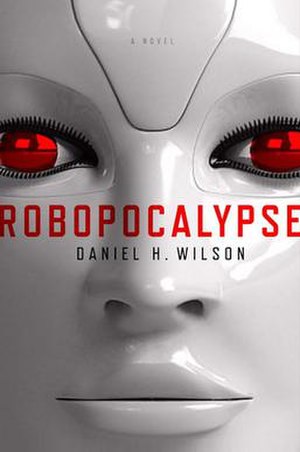And we arrive at the end, wherein I dig into what amounted to a rather eclectic portion of the month. We've got instructional, post-apocalypse sci-fi, pulp noir, post-apocalyptic young adult, and Star Wars. Let's get to it, shall we?
Writing a Novel with Scrivener by David Hewson
Writing a Novel with Scrivener was a Kindle exclusive that was offered in the Lending Library, which is a program Amazon offers to Prime customers that essentially lets them read a book for free a month. I am a pretty die hard Scrivener user, and have been for about four or five years now. I'd go into that further, but that seems to be the kind of thing I should save for later.
This little book is essentially one author's user case for the software. He details how he uses it in his own fiction writing, and what he thinks are the best ways to get the most out of it when writing a novel. And that really is all there is to it. It's well written, informative, and is pretty helpful with a lot of things that even after using the software for so long I didn't really know. Scrivener is like that, there's always something useful if you dig just a little bit deeper.
Hewson did a good job of writing something informative, but keeping it brief and interesting.
Rating: 7/10
Robopocalypse by Daniel H. Wilson

I really like Star Wars. That's no secret, ask anyone. But I'm not really a huge reader of the Expanded Universe books. Back before the prequels, when old man Lucas refused to acknowledge them one way or another, it was mostly just the "Doomsday weapon of the week" kind of deal, where Luke and the gang had to run around the galaxy destroying one planet destroying gun or bomb or starfighter after another. Then the Prequels happened, and it was all about the Jedi, and how awesome they are with the help of their clone soldiers. Super fun!
I hate most of that. So you may be able to see why I enjoyed the Republic Commandobooks so much. Written by Karen Traviss, a former war reporter who readily admits to not being a Star Wars fan in the first place. In fact, after being offered the job to write some tie-in novels she said she did a lot of research and found the Jedi to be a lot of jerks for the most part.
I'm taking a long time to explain why I love this series, but bear with me. Her task was to write a series of novels following a group of the Clone Commandos that are created in Episode II, Attack of the Clones. So she takes that concept and runs with it. The Clones are trained/raised by a badass Mandalorian (think Boba Fett, or, sigh, his father Jango) who treats them like his own sons and makes them realize that they're a literal slave army, created for the sole purpose of fighting and dying for the Republic with no choice in the matter.
When the war breaks out in the movie/books, the Jedi are all made officers (and Generals for the most part), not because they're trained to be such, but because they can do magic! And not only are they cool with these slave soldiers, most don't even acknowledge there being a problem. So the Jedi are dicks, essentially.
And I've gone on a long time without even talking about this book. Okay, back on track. This is the fifth book in the series (or the first in a second series if you want to get technical), and features the same characters that we have followed for the previous four. It takes place at the dawn of the Empire, with several of the main characters having been forced to join the Imperial 501st regiment, or the Vader's Fist, tasked with hunting down and killing the remaining Jedi.
Unfortunately, the book is better conceptually than in actual practice. There is little in a whole story arc, rather it feels like the first part in a much larger arc. It almost feels like she had a whole large story plotted out, then as she wrote it her editor told her to stop at a certain page, and to save the rest for the next book. Which would be fine, except for Old Man Lucas has decided that the books are now non-canonical, effectively ending the series.
I could go on, trust me, on how much Lucas has screwed up Star Wars over the years, but I'll quit after going on at length already. Traviss is the best of the EU writers, and it's too bad that the last of her books in this pretty great series is going to be the worst of them all.
Rating: 7/10





